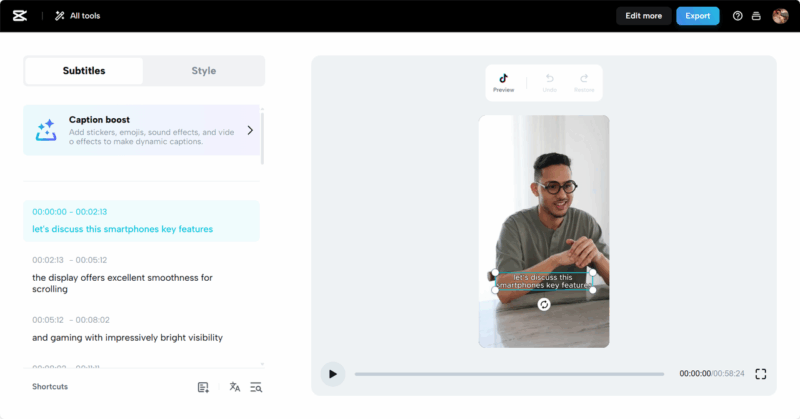When it comes to selling a home with a mortgage, understanding the fundamental principles is crucial for a smooth transaction. Unlike selling a home that is fully owned, navigating the complexities of a mortgaged property requires a bit more diligence and knowledge.
Firstly, it’s essential to grasp what selling a home with a mortgage entails. Essentially, your mortgage is a loan taken out to purchase your home, and this loan is secured by the property itself. When you sell, the mortgage needs to be settled, meaning any outstanding balance must be paid off from the proceeds of the sale. If your home’s value has appreciated since you bought it, you may find yourself in a favorable position, potentially allowing you to profit after paying off the mortgage.
Conversely, if your home has depreciated in value or if you owe more than what it’s currently worth, you may encounter challenges commonly referred to as being “underwater.” In such cases, you may need to consider options like a short sale, where the property is sold for less than the amount owed on the mortgage, subject to lender approval.
Another important aspect is understanding the role of your lender in the selling process. It’s advisable to communicate with them early on to get a clear picture of your mortgage payoff amount and any requirements they may have for the sale. Additionally, you’ll need to gather essential documents such as your mortgage statement, title deed, and any relevant paperwork regarding home improvements or repairs that could affect the value of your property.
Lastly, it’s vital to approach the sale with a realistic mindset. Pricing your home accurately and preparing it for showings can significantly impact your ability to sell, especially when a mortgage is involved. By understanding the basics of selling your home with a mortgage, you can navigate this process more effectively, ensuring that you make informed decisions every step of the way.
Assessing Your Current Mortgage Situation
Before diving into the complexities of selling your home while still under mortgage, it’s crucial to take a step back and assess your current mortgage situation. This foundational step not only helps you understand your financial standing but also equips you with the knowledge needed to make informed decisions as you navigate the selling process.
Start by gathering all pertinent documents related to your mortgage. This includes your original loan agreement, current balance statements, and any modifications that may have been made over the life of the loan. Understanding the terms of your mortgage is vital—take note of the interest rate, remaining balance, and whether you have a fixed or adjustable-rate mortgage. These factors will play a significant role in how you approach the sale.
Next, evaluate your equity in the home. Equity is essentially the market value of your home minus the outstanding mortgage balance. Calculate how much you’ve paid down on your mortgage, as well as any increase in your home’s value over the years. This will help you determine how much you can expect to profit from the sale, which is important for planning your next steps, whether that’s buying a new home or renting.
Additionally, consider the potential costs associated with selling your home. These can include agent commissions, closing costs, and any necessary home repairs or upgrades to make your property more appealing to buyers. Understanding these costs in relation to your equity will give you a clearer picture of your financial situation and what you can realistically expect to achieve from the sale.
Finally, don’t overlook any penalties that may be associated with paying off your mortgage early. Some loans come with prepayment penalties that can affect your bottom line if you sell before a certain time frame. Reviewing these details will help you map out the best strategy for timing your sale and maximizing your financial outcome.
By taking the time to thoroughly assess your current mortgage situation, you’ll be better prepared to make strategic decisions, ensuring that the sale of your home aligns with your overall financial goals.
How to Determine Your Home’s Market Value
Determining your home’s market value is a pivotal step in selling your property, especially when you’re navigating the complexities of a mortgage. Market value is essentially what a buyer is willing to pay for your home, and it can fluctuate based on various factors, including location, condition, and current market trends. Here are some effective strategies to help you accurately assess your home’s worth.
Start by conducting a comparative market analysis (CMA). This involves researching recent sales of similar homes in your neighborhood—often referred to as “comps.” Look for properties that share similar characteristics, such as square footage, number of bedrooms and bathrooms, and amenities. By examining the sale prices of these homes, you can gain valuable insights into how your property stacks up in the current market.
Another useful tool is online valuation calculators provided by real estate websites. While these can give you a ballpark figure, it’s essential to remember that they may not always account for unique features of your home or specific local market conditions. Therefore, it’s wise to use these tools as a starting point rather than a definitive answer.
Engaging a professional appraiser or real estate agent can also provide you with an accurate valuation. These experts have a wealth of experience and access to essential data that can help refine your estimate. They can offer insights into the nuances of your local market and highlight any improvements or upgrades that might affect your home’s value.

Lastly, consider the condition of your home. A well-maintained property will usually command a higher price. Make any necessary repairs, enhance curb appeal, and consider staging your home to make it more inviting to potential buyers. The better your home looks, the more likely you are to secure a favorable price.
By taking a comprehensive approach to determine your home’s market value, you’ll be better equipped to price your property competitively and attract serious buyers, all while managing your mortgage obligations effectively. This foundational step can significantly influence the success of your home-selling journey.
The Importance of Getting a Payoff Statement
When selling a home with an existing mortgage, obtaining a payoff statement is a crucial step that often goes overlooked. A payoff statement is a document provided by your lender that outlines the exact amount needed to pay off your mortgage in full, including any accrued interest and applicable fees. This statement not only clarifies your financial obligations but also serves as a roadmap for both you and potential buyers in the selling process.
Understanding the intricacies of your mortgage balance is essential for several reasons. First and foremost, it helps you determine how much equity you have in your home. This equity will play a significant role in setting a competitive listing price and in negotiations with prospective buyers. If your home is worth significantly more than what you owe on it, you’ll have more room to negotiate, which can lead to a more favorable sale. Conversely, if you owe more than the home’s current market value, you’ll need to approach the sale strategically, perhaps considering options like a price adjustment or a short sale.
Moreover, the payoff statement provides a clear timeline for when the mortgage will be paid off. This is particularly important when coordinating with your buyer’s timeline and the closing process. Lenders typically require a few days to prepare the payoff statement, so requesting it early can help avoid last-minute complications that might delay your sale.
Additionally, keeping a copy of the payoff statement can provide peace of mind during negotiations. Buyers are often wary of homes with existing debt, and having transparent documentation can bolster their confidence in your property. It illustrates that you are proactive and organized, making the transaction smoother for everyone involved.
In summary, obtaining a payoff statement is not just a formality; it’s a pivotal step that empowers you to make informed decisions throughout the selling process. By understanding your financial obligations, you can navigate the complexities of the real estate market with confidence, ensuring a successful sale that meets your needs and goals.
Disclosing Mortgage Details to Potential Buyers
When selling your home with an existing mortgage, one crucial aspect to consider is how much information you should disclose to potential buyers regarding your mortgage details. Transparency can go a long way in building trust and fostering a smooth transaction process, but it’s essential to strike the right balance between openness and protecting your financial interests.
Potential buyers such as sell my house fast Rio Rancho companies will likely want to know about the outstanding balance on your mortgage, the type of mortgage you have, and any specific terms that could affect the sale. For example, if you have a fixed-rate mortgage, buyers may feel reassured knowing that they won’t be subject to fluctuating interest rates. Conversely, if you have an adjustable-rate mortgage, it’s important to communicate the potential for increases in monthly payments down the line.
Additionally, if your mortgage has a due-on-sale clause, which requires the loan to be paid off when the property is sold, you’ll need to inform buyers that they cannot simply take over your mortgage. This clause can lead to complications in the sale process, so it’s best to be upfront about it.
Being transparent about your mortgage can also help buyers understand the financial implications of their purchase. For instance, if you have a favorable interest rate that a buyer may want to assume, highlighting this could make your home more attractive. Providing clear documentation and a breakdown of the remaining mortgage payments can help buyers see the value in your property and understand the financial commitment involved.
Ultimately, disclosing the right amount of mortgage information not only aids in setting realistic expectations but also positions you as a trustworthy seller, paving the way for a more straightforward and successful sale. Remember, the goal is to create a win-win situation where both you and the buyer feel confident and informed throughout the transaction.
Closing the Sale: What to Expect
Closing the sale of your home, especially when you still have a mortgage, can feel like navigating a complex maze. However, understanding what to expect during this crucial phase can alleviate much of the stress and uncertainty.
As the closing date approaches, you’ll find yourself amid a torrent of paperwork, negotiations, and final preparations. The closing process typically involves several key players: you, the buyer, real estate agents, and closing agents, all of whom work together to finalize the sale. One of the first steps is to review the closing disclosure, a detailed document outlining the terms of the mortgage, final costs, and any outstanding fees. It’s essential to scrutinize this document carefully to ensure that everything aligns with your expectations and previous agreements.
During the closing meeting, you’ll sign a myriad of documents that transfer ownership from you to the buyer. This often includes the property deed, mortgage payoff statements, and various affidavits. If your home carries a mortgage, the lender will require a payoff amount. This figure will detail the exact amount needed to settle your mortgage, ensuring that the buyer’s funds can be directed appropriately to pay off your outstanding loan.
Expect emotions to run high as you hand over the keys to your beloved home. This isn’t just a financial transaction; it’s a significant life transition. Moreover, it’s wise to prepare for any last-minute negotiations or inspections that might arise. While these can be frustrating, they are essential to ensuring that both parties are satisfied with the outcome.
Finally, once all documents are signed and funds have been transferred, you’ll receive a closing statement summarizing the entire transaction. This document serves as proof of your sale and is crucial for your records, especially when it comes to taxes. With the paperwork completed and the keys handed over, you can finally breathe a sigh of relief. Congratulations—you’ve successfully closed the sale on your home, paving the way for new beginnings, whether that means moving into a new place or embarking on a fresh chapter in your life.
Paying Off Your Mortgage at Closing
When it comes to selling your home with a mortgage, one of the most critical steps is understanding how to pay off your mortgage at closing. This process can seem daunting, but with the right knowledge and preparation, you can navigate it smoothly and with confidence.
As you prepare for the sale, it’s essential to contact your mortgage lender to obtain a payoff statement.

This document details the exact amount you owe on your mortgage, including any accrued interest and fees. Knowing this figure is crucial, as it will directly affect your net proceeds from the sale. When negotiating the sale price, be sure to factor in the outstanding balance of your mortgage to ensure you can cover it at closing.
On the day of closing, several key actions take place. The buyer’s funds are transferred to the closing agent, who is responsible for disbursing payments. The closing agent will use part of the buyer’s funds to pay off your mortgage directly to the lender, ensuring that the lien on your property is released. This step is vital, as it clears the title for the new owner and officially transfers ownership.
It’s also important to keep in mind that if your home sells for more than what you owe on your mortgage, you will receive the surplus amount as part of your proceeds. However, if your home sells for less than your outstanding mortgage, you may need to consider options like a short sale, where the lender agrees to accept less than the full amount owed.
To ensure a seamless closing process, stay in constant communication with your real estate agent and lender. They can provide guidance and support, helping you understand your responsibilities and ensuring that all necessary paperwork is in order. By paying off your mortgage and closing efficiently, you’ll be well on your way to a successful sale and ready to embark on your next adventure, whether that’s purchasing a new home, investing, or simply enjoying the newfound financial freedom.
What Happens if You Owe More Than Your Home’s Value?
Selling a home can be a complex process, particularly when you find yourself in a situation where you owe more on your mortgage than your home is currently worth—a scenario often referred to as being “underwater” on your mortgage. This can be a daunting predicament, but understanding your options is key to navigating this challenge effectively.
When your home’s market value dips below the remaining balance of your mortgage, it means that if you sold the property, the sale proceeds wouldn’t be enough to cover what you owe. This situation can arise due to various factors, such as economic downturns, changes in neighborhood desirability, or other market conditions. The first step is to assess your financial situation and determine whether you can continue to make your mortgage payments or if it’s time to consider selling.
One option to explore is a short sale. In a short sale, the lender agrees to accept less than the full amount owed on the mortgage, allowing you to sell the home and discharge your debt. However, this process can be lengthy and requires the lender’s approval, which can take time and may involve extensive documentation. Additionally, keep in mind that a short sale can have implications for your credit score, though typically less severe than a foreclosure.
Another option is to consider a loan modification or refinancing. If you’re still making your mortgage payments and want to stay in your home, contacting your lender to discuss potential modifications to your loan terms might be beneficial. This could involve lowering your interest rate or extending the loan term, making your monthly payments more manageable.
If neither of these options is viable and you need to sell quickly, you might consider involving a real estate investor or a cash buyer. While you might not get the full market value for your home, selling to an investor can sometimes provide a quicker resolution, allowing you to move on without the burden of your mortgage.
Ultimately, facing a situation where you owe more than your home’s value is certainly challenging, but it’s not insurmountable. By understanding your options and seeking guidance from real estate professionals, you can navigate this tricky landscape and make informed decisions that align with your financial goals. Remember, the key is to stay proactive and informed, ensuring you choose the best pathway for your unique circumstances.













